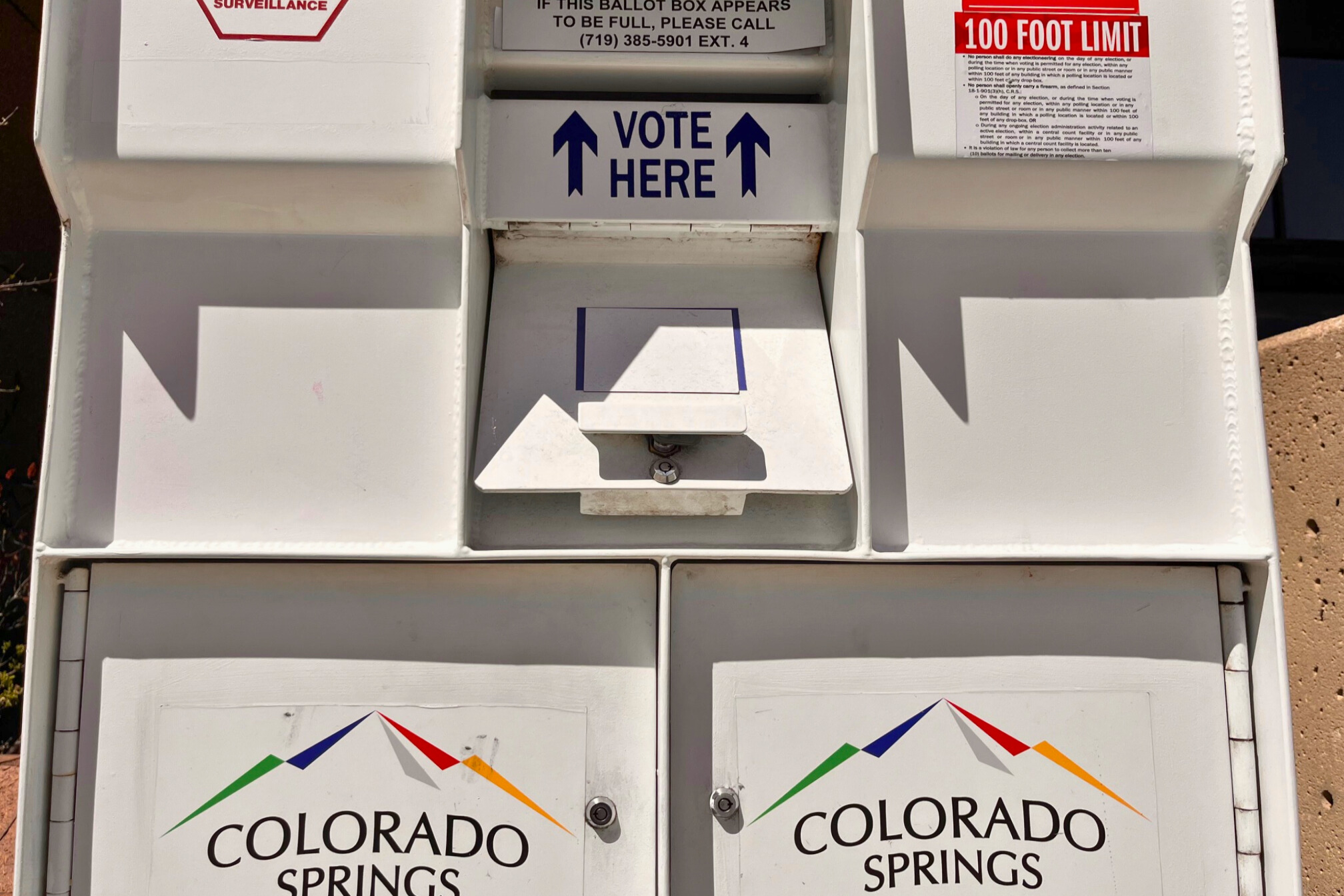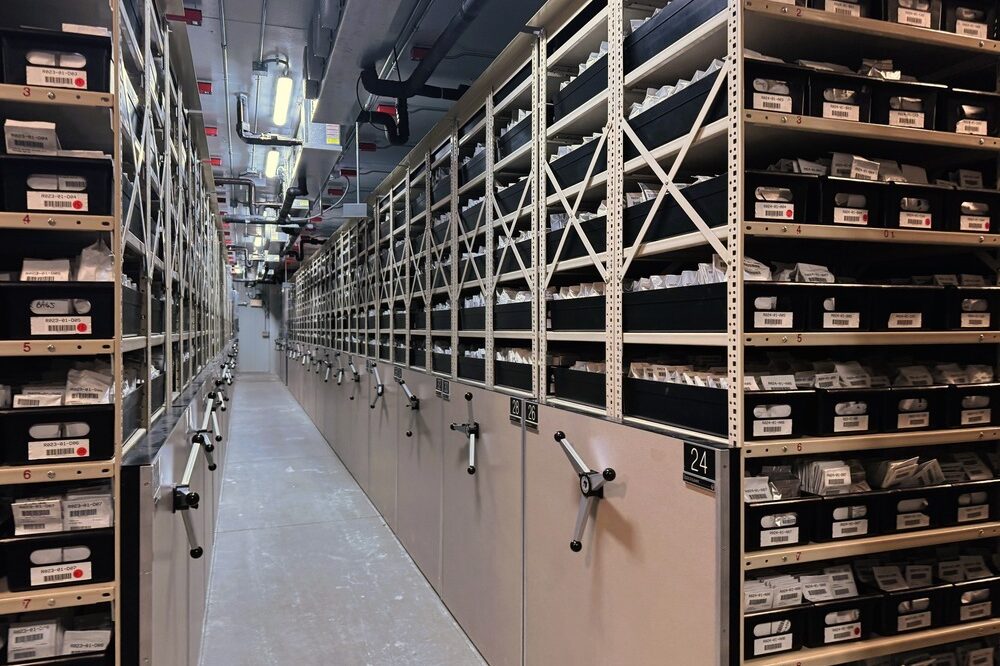Originally published on October 7, 2019 11:59 am
When Gov. Jared Polis used an executive order to create his new Office of Saving People Money on Health Care eight months ago, he said it was the first office of its kind.
"There's a lot of departments across state government that handle health care, but there's been no office until today dedicated to helping us save people money on health care," Polis told reporters and lawmakers gathered in his office for the announcement.
But Polis overlooked some history. If you walk a block from the Capitol to the state archives building, they still have a copy of Executive Order D005 08. It's what then Gov. Bill Ritter used in 2008 to create the Center for Improving Value in Health Care, or CIVHC.
"In order to achieve our goal of creating a stronger health care system for Colorado, we must slow down and reverse the trend of increased spending and decreased quality of care," Ritter wrote in the order creating the new branch of state government.
CIVHC still operates today with 24 employees on the second floor of a skyscraper in the Cherry Creek area. It was part of the state government until 2011, when Gov. John Hickenlooper declared it was ready to stand on its own as a private non-profit.
Last week, data analysts at CIVHC were busy crunching numbers they hope will lead to better care and lower costs. And the organization recently landed a new state contract that will ensure the data it gathers continues to be used by lawmakers and government officials.
"We're ramping up what we're providing to all state agencies not just the governor's office or Medicaid, but the division of insurance, the Colorado Department of Public Health and Environment," said Cari Frank, CIVHC's communications director.
CIVHC is receiving more than $4 million in state funds this year, mostly to manage what's known as an all payers claim database. It tracks how much patients have had to pay to hospitals, doctors, dentists and pharmacists for care. And the data is viewed as useful in helping to contain costs and spot trends.
But CIVHC is more than just that database. Lawmakers turned to the organization this year when they needed data to help guide a new reinsurance program that is expected to drop premiums on the state's individual marketplace by an average of 18.2% next year.
CIVHC also has developed a web tool that patients can use to shop around for different providers. As she showed off the office last week, Frank used the site to show how the cost for a knee replacement can vary by more than $30,000 between hospitals in Vail and southern Colorado.
She said hospitals love to get their hands on the pricing data.
"They're always actually really excited when they're in the middle and they don't want to the be the highest," she said, adding the price chart can be a motivator to lower prices if a hospital becomes an outlier.
Journalists also turn to CIVHC for help. A recent story about how a Colorado man's hangover from a bachelor party cost him more at the ER than his actual wedding featured data from the center.
Different roles
Despite similar names, missions and roots as government entities, leaders of CIVHC and the new Office of Saving People Money on Health Care say they are different.
"Our organization is providing data that would inform how they want to actually put policies into place and put programs into place that could actually save people money, as the name implies," Frank said. "We don't have the ability to, as an unbiased entity, say this entity should do this and you guys should be doing this and this is the policy."
Gov. Polis said Wednesday while CIVHC is a data solution to health care costs, his new office goes a step further.
"This is a lot more than just that one particular database," he said of his new office, which is led by Lt. Gov. Dianne Primavera. "It's for instance supporting our work about piloting a prescription drug program … It's about not just passing a reinsurance program but getting a favorable federal waiver, which we were able to achieve, and it's about expanding the (Peak One) alliance (insurance cooperative) model piloted in Summit County, and expanding it to other counties."
Praise and scorn
Polis' use of executive orders to create new government offices has been controversial.
When he announced his second new office, The Office of Future of Work, State Sen. Nancy Todd, D-Aurora, applauded the move.
"Gov. Polis is a mover-shaker, and he looks at things in a non-conventional way and that to me is a benefit," she said.
But Republican lawmakers haven't been as supportive of Polis' moves.
All of them opposed his request to raise Primavera's annual salary by about $75,000 to lead the new Office of Saving People Money on Health Care.
"The additional money we are appropriating is more than what I believe to be the average salary of Coloradan who is working 40 hours a week," State Sen. Bob Gardner said of Primavera's salary increase in April. "It is bad public policy for public officials. It is bad policy."
Asked about the mixed response to the move, Polis said he sees the new office as a worthwhile investment.
"As a businessperson myself, having started several companies, we just look at the return on investment," he said. "By having an office of saving people money on health care, literally, it only costs a couple hundred thousand dollars. We save tens of millions or hundreds of millions of dollars for Coloradans on insurance."
Polis said his new office is starting to focus on the prospect of a new public insurance option in Colorado, which some lawmakers think will increase competition and lower premiums.
Capitol Coverage is a collaborative public policy reporting project, providing news and analysis to communities across Colorado for more than a decade. Eleven public radio stations participate in Capitol Coverage from throughout Colorado.
Copyright 2019 KUNC. To see more, visit KUNC.








